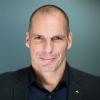You are here
Iran excludes most candidates in elite assembly election
By Reuters - Jan 26,2016 - Last updated at Jan 26,2016
DUBAI — Four-fifths of candidates for the body that will choose Iran's next supreme leader have withdrawn or been disqualified including a grandson of Ayatollah Khomeini close to reformist politicians, in a setback to President Hassan Rouhani.
The 12-member Guardian Council, a clerical body that oversees elections and legislation, approved just 166 of the 801 candidates for the Assembly of Experts, electoral commission spokesman Siamak Rahpeik was quoted as saying by state news agency IRNA on Tuesday.
The disqualifications, a week after thousands of parliamentary candidates were similarly excluded, are a blow to Rouhani, who is signing business deals in Europe this week after pushing through a nuclear deal with world powers.
Back in Tehran, hardliners who opposed his diplomatic opening are manoeuvring to exclude his allies from the upcoming elections and check his ambitions to carry out domestic reforms.
Among those excluded was Hassan Khomeini, grandson of the Islamic republic's first supreme leader Ayatollah Ruhollah Khomeini, his son Ahmad said on Instagram. Hassan Khomeini, the first member of his family to stand in elections, is seen as politically moderate and is popular among Iran's beleaguered reformists.
Elections to the 88-member Assembly of Experts fall on February 26. The Assembly oversees the activities of Supreme Leader Ayatollah Ali Khamenei, and will choose his successor if the 76-year-old cleric dies or becomes incapacitated during its eight-year term.
Elections to the 290-seat parliament are being held on the same day. Last week, the Guardian Council disqualified more than 7,000 of the 12,000 parliamentary candidates, including almost all reformist candidates and many moderates.
Rouhani, who hopes his moderate allies can wrest control of the two assemblies from hardline factions, criticised the disqualification of parliamentary candidates and may also oppose the mass exclusion of Assembly of Experts candidates.
But Khamenei, who outranks the president, called for candidates to be strictly vetted, and Guardian Council Chairman Ahmad Jannati assured him the council would "not be affected by any pressure".
"The message to Rouhani and many others is that there are thick red lines at the heart of the establishment," said Hossein Rassam, former political adviser to the British embassy in Tehran.
The Guardian Council, which is dominated by hardliners, can disqualify candidates on a diverse range of technical and ideological grounds including gender, level of education, and commitment to Islam and the constitution.
Revolutionary legacy
Ahmad Khomeini said his father, a 43-year-old mid-ranking cleric, had been disqualified on the grounds of his religious credentials despite the testimony of dozens of senior religious figures. Hassan Khomeini said he would issue a response in the coming days.
Khamenei initially approved Khomeini's candidacy, but warned him not to damage the family name. Khomeini's grandfather led Iran's 1979 revolution and founded the Islamic republic. He died in 1989 and was succeeded by Khamenei.
Despite his revolutionary lineage, Hassan Khomeini is politically moderate and close to several reformist politicians who were sidelined after disputed presidential elections in 2009.
He formed an informal alliance of political moderates with Rouhani and former president Ayatollah Ali Akbar Hashemi Rafsanjani. Rouhani and Rafsanjani are also candidates for the Assembly of Experts and were approved by the Guardian Council.
But the exclusion of the charismatic Khomeini, with his unique revolutionary legacy, is a major blow to the moderate movement. With so few candidates approved, conservatives appear likely to stay firmly in control of both parliament and the Assembly of Experts.
"The tiny faction led by Rafsanjani, who once used to lead the assembly, will not be able to have a big say," Rassam said. Rafsanjani was ousted as the Assembly's chairman last year in favour of Ayatollah Mohammad Yazdi, a hardliner.
Hardliners have thwarted Rouhani's attempts to push through domestic reform since his election as president in 2013, including proposals to codify political crimes and prevent the security forces from policing religious adherence.
Related Articles
TEHRAN —Former president Akbar Hashemi Rafsanjani lashed out Monday at Iran's vote vetting panel over its exclusion of a grandson of the lat
TEHRAN — Iran’s Assembly of Experts chose another hardline cleric as its chief on Tuesday, keeping the powerful religious body in ultraconse
TEHRAN — Iran on Thursday started registering candidates for an influential clerical body that monitors the country's supreme leader and pic














